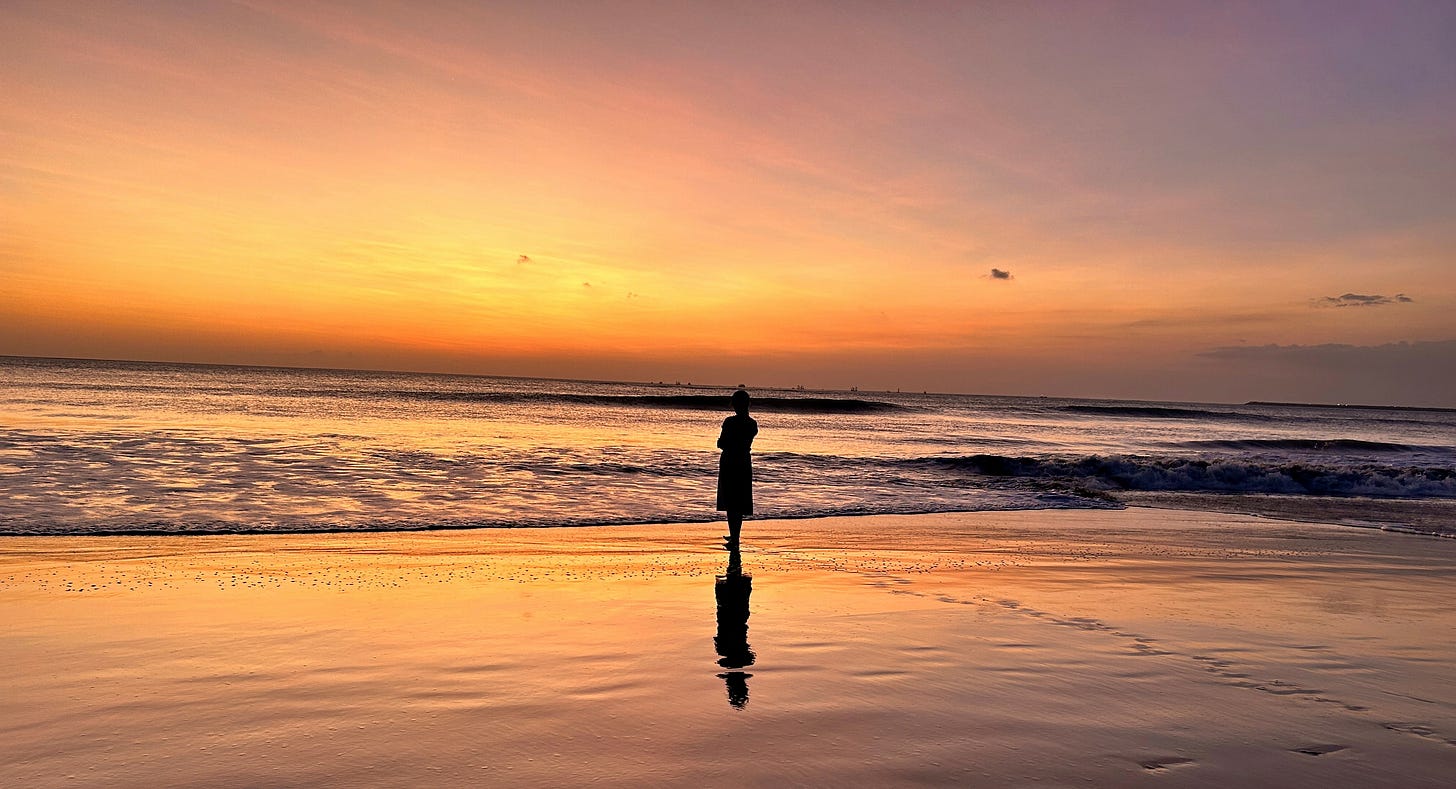Have you ever felt like an outsider?
Perhaps you remember blinking back tears as a teenager while scanning the lunch hall for a place to sit. Or maybe you have experienced the tight chest and shallow breaths that hit you at a work event where your face doesn’t fit.
You’ll find it in the moments when you bite back your true thoughts rather than share them with a loved one. It’s in the dreams unspoken, and the lives un-lived, for fear of disappointing the people you care about. And don’t forget the metaphorical door the gatekeepers slam shut on your ambitions.
Over the summer in England, we had a stark reminder that belonging is not a concept that everyone is comfortable with. After false rumours spread on social media about the identity of a man responsible for the horrific fatal stabbing of three schoolgirls, there were anti-immigration protests and far-right riots across the country.
The result was the worst civil unrest since 2011, with racist attacks, arson, and harassment.
So, when I was invited to facilitate a community philosophy session with a diverse group of East Londoners, I decided to explore the meaning of belonging. It’s a philosophical concept that I’ve considered many times over the last twenty years, as a teacher, educational consultant and philosophy facilitator, and one which forms a key theme in my writing.
What makes us seek belonging?
We all crave a sense of belonging, some more intensely than others. We all search for a place where we will be accepted. You may believe this need is due to a lack of self-esteem or self-confidence, but it isn’t.
No one can escape evolution.
Early humans thrived by forming social groups which allowed them to share resources, skills, and protection, ensuring the survival of future generations. If you were isolated in a predator-infested world, with no human assistance and facing the unforgiving elements, your genes wouldn’t stand a chance in the race of the fittest.
Our innate need for survival compels humans to form social bonds and conform to group norms. In early human societies, it was a matter of life and death. Even now, it has an impact on our health and longevity.
A landmark study (House et al. 1988) found that social connection leads to a 50% increase in longevity. Other studies, such as those in blue zones where people live longer lives, also show that strong social connections play a significant role in achieving longevity.
Research also reveals that feeling connected is crucial to our overall well-being, with loneliness negatively affecting both our minds and bodies. Mann et al. (2021) found that loneliness increases the risk of anxiety and depression. While the World Health Organisation reports that social isolation and loneliness are associated with a higher risk of cardiovascular diseases, a weakened immune system and increased mortality rates. It is comparable to other risk factors such as smoking and obesity.
It isn’t just you who feels low when you don’t feel like you belong, it is vital for human happiness and flourishing.
According to Aristotle, ‘Man is by nature a social animal.’ For him, eudaimonia (a flourishing life) can’t be achieved without forming meaningful relationships and participating in society. True happiness and meaning in life stem from our interactions with others, not just from merely existing.
Despite this fundamental need in all of us, those in charge (the gatekeepers) often decide who can join groups and how.
To be accepted in many social, professional, and cultural contexts, you must conform to the norms, values, and behaviours established by gatekeepers. It might be something simple, like complying with a workplace dress code, or something more significant, like agreeing to common values and behaving in a certain way.
As humans, we can recognise the value of stability and shared purpose in a group so we choose to conform when it helps us. It is how we have developed our complex societies.
What if we don’t feel like we belong?
Maybe the group doesn’t appreciate your individuality, or perhaps you’re faking it to belong but struggle internally. You may find you need to make a conscious effort to fit in, aligning your actions and beliefs with the group’s, when others seem to belong effortlessly.
Abraham Maslow’s ‘Hierarchy of Needs’ suggests that the need for ‘belongingness and love’ is crucial, coming right after basic needs like food, water, and safety. It seems that the need for stable relationships, and a sense of belonging, is crucial for us all.
According to sociologists like Henri Tajfel, our sense of self comes from our social identity, which is shaped by a feeling of belonging. Tajfel argues that group affiliations, including nationality, ethnicity, gender, and religion, contribute to our feelings of pride and self-worth. These groups provide a framework for understanding the world and our place within it, as well as a sense of continuity and meaning. When we lack this sense of belonging, it can lead to an identity crises, like many felt over the summer in England.
So, if belonging is a key human need, should we compromise our individuality to fit in?
Brené Brown thinks not, ‘true belonging doesn’t require you to change who you are; it requires you to be who you are.’
But, don’t forget the gatekeepers…
We live in a world of constant judgement, online and in person. Scrutiny, from friends and strangers alike, has intensified with the age of social media. Going back only thirty years, unless you were a celebrity you would never interact with more than a handful of people at a time. It would be very unlikely that many people would see an image of you or hear your voice. If someone wanted you to know they didn’t like you, they would have to say it to your face or ask a mutual friend to tell you. Even across a whole lifetime, the judging eyes on us were negligible compared to now.
This is a huge contrast to the instant access we now have to other people online. We see thousands of images a day, which we judge and compare to ourselves. Depending on what you share, there are thousands of eyes back on you, likes or the lack of them, and even emboldened voices that feel no fear in trolling you.
Gatekeepers are not just individuals but can be institutions or whole sections of society who control access to opportunities and decide who belongs and who does not - controlling entry, deciding on who gets which opportunities, and access to the best resources. They have the power to both elevate and marginalise, shaping the contours of our world.
The inevitable truth is that we now encounter more gatekeepers than ever. Gatekeepers who place the highest value on achievement and appearance, status and success. Johann Hari’s idea, that ‘we’ve traded in human connection for social approval’, reflects a world where we strive to impress others rather than just be ourselves.
So, how do we grow our own sense of belonging in the world?
Understanding our need to belong starts with questioning why we seek approval from others or acceptance from gatekeepers who reject us.
Maybe you hope to work in an industry that doesn’t welcome people from your background. Or you may live somewhere where certain groups have unequal access. Perhaps your dreams have been limited through lack of privilege or connections. It might be that your family doesn’t understand your choices or approve of your lifestyle.
Going back to my community philosophy discussion, I heard some powerful reflections that have stayed with me. One participant explained that they had chosen to build their own yoga and wellbeing community into which they welcomed all (including me) to create a space where everyone can feel that sense of belonging. It was a way to circumvent the gatekeepers they had encountered in their life and take back the power.
Another participant said that they no longer saw it as ‘being given permission to belong’ but that they rightfully took up space in any place that they chose to. Someone else felt that they had cultivated such a strong sense of self inside that they belonged to themselves, regardless of where they were or who they were with.
For myself, I’ve learnt to look around the gatekeepers and train my focus beyond them. Their power diminishes when you shift your attention to those likeminded souls who who choose to turn their backs and create their own inclusive communities into which they will welcome you… and if you don’t see them, then you are the one who needs to start the group and welcome the others standing behind you.
Want to read more? Here’s one from the archives. Five life-changing quotes that fuelled my writing journey.
Are you nurturing that sense of belonging in yourself?
What have been your experiences with gatekeepers and belonging?









Being a person of color in the US often means creating your own spaces. And the people who join around you? Those are your community members.
For me that is an odd one. Early on in life I took a different path to that lit by my parents and have a few times in my life had to stand my ground and say 'yeah, no, all of you can say that but I'm not with you, I think that is wrong' I'm not saying I'm a leader (although I tend to lead) but I definitely do not follow, and feel no need to comply with anyone to fit in. For me its about democracy in the broadest sense- that my opinion is worth no more, or less than another persons (excepting experts of course like engineers, doctors etc) I respect others and demand the same respect. The important thing for me is...I guess in a word -integrity. I rejected the cultural and religious background of my parents but that didn't leave me in a moral void - it made me think what pillars shore up the temple to atheism I want to worship in. As a teen I quickly identified what mattered to me - freedom, truth, love- it has stayed the same for life albeit with a late comer...duty. So for me, I don't give a flying f**k whether I fit into any society or sub section of society, indeed to comply with behaviours that offend me whether turning a blind eye, or avoiding confrontation would tear me to shreds. I stand or fall by my own moral code and values, alone or in a crowd.